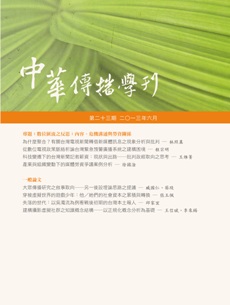 閱覽人數: 2640
閱覽人數: 2640
June
2013
No. 23
數位匯流之反思:內容、危機溝通與勞資關係
Content, Crisis Communication and Labor Relations: Reflections on Digital Convergence頁數:229 - 266
作者(中)
邱家宜
作者(英)
Eve Chiu
關鍵詞(中)
失落的世代、台灣本土報人、吳濁流、亞細亞孤兒意識、選擇性傳統
關鍵詞(英)
lost generation, Taiwan native newspapermen, Wu Cho-Liu, consciousness of Asian orphans, selective tradition
中文摘要
本文從前殖民地智識分子的失語困境與認同掙扎來論述吳濁流如何在戰後發展出他的「亞細亞孤兒意識」。其所代表的台灣本土報人這一脈,雖然一度在國府強力的文化霸權掌控中,透過「選擇性傳統」的運作而幾近湮滅,成為「失落的世代」,卻又在解嚴後的社會環境中,透過另一波「選擇性傳統」的過程死灰復燃,成為理解當前台灣媒體生態的重要角度。
英文摘要
This essay presents a discussion on the difficult post-war situation of people educated in the pre-colonial period, such as Wu Cho-Liu. Speechless and struggling over self identities, Wu Cho-Liu started exploring “consciousness of Asian orphans.” As a typical example of Taiwan native newspapermen, he shared their heritage, and the hegemonic KMT regime repressed his career through the mechanism of “selective tradition,” leading him to become one of the “lost generation.” However, after martial law ceased, those nearly dead heritage of Taiwan society were resurrected in a new “selective tradition” process. It shows important perspectives for understanding the current Taiwan media ecosystem.